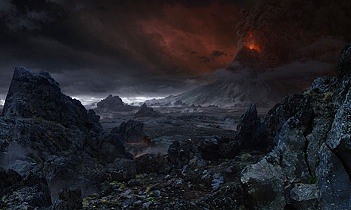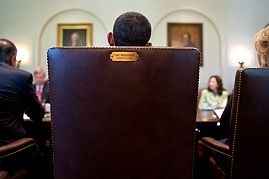Paul Craig Roberts
Truly, Amerika is a light unto the world, an example for all.
In the past decade, Washington has killed, maimed, dislocated, and made widows and orphans millions of Muslims in six countries, all in the name of the “war on terror.” Washington’s attacks on the countries constitute naked aggression and impact primarily civilian populations and infrastructure and, thereby, constitute war crimes under law. Nazis were executed precisely for what Washington is doing today.
Moreover the wars and military attacks have cost American taxpayers in out-of-pocket and already-incurred future costs at least $4,000 billion dollars--one third of the accumulated public debt--resulting in a US deficit crisis that threatens the social safety net, the value of the US dollar and its reserve currency role, while enriching beyond all previous history the military/security complex and its apologists.
Perhaps the highest cost of Washington’s “war on terror” has been paid by the US Constitution and civil liberties. Any US citizen that Washington accuses is deprived of all legal and constitutional rights. The Bush-Cheney-Obama regimes have overturned humanity’s greatest achievement--the accountability of government to law.
If we look around for the terror that the police state and a decade of war has allegedly protected us from, the terror is hard to find. Except for 9/11 itself, assuming we accept the government’s improbable conspiracy theory explanation, there have been no terror attacks on the US. Indeed, as RT pointed out on August 23, 2011, an investigative program at the University of California discovered that the domestic “terror plots” hyped in the media were plotted by FBI agents.
FBI undercover agents now number 15,000, ten times their number during the protests against the Vietnam war when protesters were suspected of communist sympathies. As there apparently are no real terror plots for this huge workforce to uncover, the FBI justifies its budget, terror alerts, and invasive searches of American citizens by thinking up “terror plots” and finding some deranged individuals to ensnare. For example, the Washington DC Metro bombing plot, the New York city subway plot, the plot to blow up the Sears Tower in Chicago were all FBI brainchilds organized and managed by FBI agents.
RT reports that only three plots might have been independent of the FBI, but as none of the three worked they obviously were not the work of such a professional terror organization as Al Qaeda is purported to be. The Times Square car bomb didn’t blow up, and apparently could not have.






























